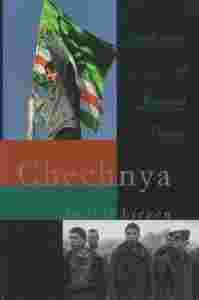|
____________
Wydawnictwo Yale University Press. New Haven and London 1998
Stron 448
Wymiary: 24 x 16 cm
Książka w języku angielskim
____________
|
DARMOWA WYSYŁKA W POLSCE PRZY JEDNORAZOWYM ZAKUPIE NA MINIMUM 7 AUKCJACH !!!
(z wyjątkiem przedmiotów o wartości mniejszej niż 2,50 zł)
ZOBACZ POZOSTAŁE AUKCJE !!!
ZAKUP NA KILKU AUKCJACH - JEDEN KOSZT WYSYŁKI (jak przy aukcji, na której jest on najwyższy).
OPCJE WPŁATY:
1) PayU - najsprawniej i najbezpieczniej (kartą Visa, Master Card lub e-przelewem),
2) Na konto bankowe
WYSYŁKA INPOST, EWENTUALNIE DO MNIEJSZYCH MIEJSCOWOŚCI POCZTA POLSKA.
International customers
SHIPPING WORLDWIDE
|
| The war between Russia and the Chechen separatist forces, from December 1994 to August 1996, may be seen by future historians as a key moment in Russian and even world history. This is not because of its immediate consequences, which seem likely to be limited, but because of the light it has thrown on one of the crucial developments of our time: the end of Russia as a great military and imperial power. In terms of sheer logistical achievement, the Chechen victory - against such odds - over the Russian army is one of the epics of colonial resistance this century. As a moment in military history, it has lessons to teach on military anthropology, the nature of urban combat, national mobilization, and the limits of air power. In addition to providing a step-by-step account of the conflict on the ground, Lieven takes issue with the prevalent Western schools of thought and writing about Russia, which have exaggerated its military strengths, misconstrued its political culture, swallowed its nationalist rhetoric, and transposed imagined "ideological quests" onto the Russian psyche. Despite what most "experts" would have us believe, ordinary Russians are not primarely concerned with empire, glory and national status, but with economics, security and the daily effort to survive. Despite the scale of the Russian defeat, the mystique of its military power remains tenacious in the West. Lieven's account demolishes the conventional black-and white view, ridicules the incessant repetition of the baseless and mistaken set of alternatives for the country's future, and sets Russia's humiliation at the hands of a tiny group of badly-organized guerrillas in a framework.
____________
Review: FOREIGN AFFAIRS (May/June 1998)
or most of the world, including most Russians, the war in Chechnya was a loud rumble, but where it came from and what it represented remain something of a mystery. Lieven gives the war a precise, detailed, and compelling profile. From 1990 to 1996 he was the London Times correspondent in Moscow, and there the war became his beat. He covered it not merely from his office but during many trips to the region, and not simply to the ill- fated capital of Grozny but into the hills and amid the mundane brutality. Before Yeltsin made his tragic decision to intervene at the end of 1994, Lieven had been visiting the region for more than two years, so he knew well -- and reports well on -- the players and gambits going back to 1991. Lieven is a remarkably talented writer and a fine historian. As a result he provides much more than an eyewitness account of the war's smells, colors, and pain; he relates the conflict to Russia's own uncertain battle with itself, explaining the mix of politics and miscalculation that led its leadership to make this mistake, what the conduct of the fighting tells us about the state of the country, particularly key institutions like the military, and why, in the end, it lost. One is hard-pressed to say whether the Russian or the foreigner will gain more from this book.
_____________
A correspondent for the Financial Times, Anatol Lieven spent much time in Chechnya, the postage-stamp-sized Caucasus republic whose break from Russia in 1994 precipitated a major war (one that Russia lost). Lieven looks into the long, troubled history of Russian-Chechen relations, noting that each side despised the other for largely cultural reasons (the Chechens have long been involved in organized crime in major Russian cities, whereas Russians have long tried to strip Chechnya of its resources). He notes that Chechen society has historically been militarized (one Armenian said to Lieven, "The men are always fighting and the women are cooking for them, nursing their wounds, and bringing up their children"), making the mountain people a formidable foe. In the meanwhile, writes Lieven, the Russian military suffered from low morale and from corruption of various kinds: Russian field soldiers sold their guns to Chechen guerrillas for vodka and currency, while Russian officers stole their soldiers' pay and Russian politicians skimmed off the top. This is an extraordinary look at a little-known conflict. --Gregory McNamee
|
Anna Politkowska ZSRR Polska Inguszetia Krystyna Kurczab Redlich polityka Władymir Putin Moskwa NATO Syberia Ukraina Donieck Donbas Kijów Majdan Stosunki międzynarodowe PRL komunizm usa onz wojna druga wojna czeczeńska reportaż reportage non fiction nonfiction non-fiction Czesław Miłosz nagroda nobla literacka literatura |

